Today’s readings
Today we celebrate the great feast of Our Lord Jesus Christ the King of the Universe. In the past, I have said on this feast that it’s a little odd for us, mostly because we don’t have a king in our system of government, so it’s hard for us to relate. But lately, I’ve been thinking it goes a little deeper than that, because we have been conditioned to think that authority figures are someone we can ignore. And let’s face it, many authorities deserve to be ignored. Nobody in their right mind runs for political office anymore, it seems. Just look at the characters running for president this time: wouldn’t it be nice if even one of them was just not crazy?
But it even goes deeper than that. Nobody respects the authority of the Church, it seems, and to some extent, we probably deserve that too. Many priests and bishops have abused their authority and have abused their parishioners, and that is shameful. But even deeper than that, people both young and old don’t respect their parents in the way they should be. And when you ask people why they do something that is objectively wrong, they’ll often tell you, “I think it’s okay,” as if their opinion were the be-all and end-all of morality.
Some of this, as I’ve mentioned, is deserved, but much of it is a violation of the Fourth Commandment. Because here’s why: When we get used to ignoring the legitimate authority in our lives, we get used to doing our own thing. Then not even Jesus can be the Lord of our lives. And when that happens, we’re on the path to destruction, because he is the only one that can justify us, the only one who can redeem us. He is, as he says in another place in the Gospels, “The Way, the Truth, and the Life” (John 14:16). Notice: not just a way, or one possible truth, or a good but not obligatory life, but The way, the Truth, and the Life. He goes on to say, “No one comes to the Father except through me.”
So I think we definitely need this feast of Our Lord Jesus Christ, the King of the Universe, to remind us that there is authority worth observing. And here, at the end of our liturgical year, we celebrate the one who is that authority. As we look back on the past year, there may have been times of great achievement, or times of failure. We may have celebrated life, or had to deal with sickness and death. We may have been blessed by wonderful, nurturing relationships or we may have had to deal with discord and strife. But if this year has meant anything, hopefully we can say that we have come through it with the help of Jesus our Savior, who is our Lord and King.
In today’s first reading, we have the promise of a king: one like a son of man with an everlasting dominion. This part of the book of Daniel comes from a series of visions. In these visions, particularly the one we have today, Daniel gives the Jews hope in persecution. This is a vision that is spoken to lift the people up and help them to know that their hope is in God.
The Jews of Daniel’s day have been being persecuted by the Greek tyrant, Antiochus Epiphanes IV. He and his henchmen were persecuting the Jews who insisted on living the Jewish way of life. But what is even more evil and more disastrous to the community, is that some of the Jews were starting to think that giving up their way of life and instead worshiping the gods of the Greeks was a good idea. They saw how powerful the Greeks were and attributed that to the gods they were worshipping. So, why not give up their own faith to follow one that seems to be working better? The biggest danger they faced was losing their faith, and really their way of life, to the pagans by adopting pagan ways of life.
Well, we clearly are not under the persecution of Antiochus Epiphanes, but we are definitely in danger of losing our faith to the pagan forces of this world. Just look at the terror and discord in the world today, especially the Christians being forced out of Syria – and many other places, I might add. Our faith and our way of life are in danger too. And that is to say nothing of the way that the secular culture around us threatens to devour us. We might find ourselves going along with that culture without really thinking about it. Everything that promises us power, success and wealth has the ability to take our hearts and souls with it. Why not just give in? Won’t paganism and evil win out in the end?
Well, Daniel sure didn’t think so. He prophesied that there would be one like a Son of Man who would triumph over Antiochus and others like him. This One would deliver them from the persecution they suffered and from the seduction that confronted them. This One would rule the world in justice and peace, and would lead the persecuted ones to a kingdom that would never pass away. The early Church identified this Son of Man with Jesus Christ. He is the One who has power to rule over all and he is the One whose kingdom is everlasting. He is the One who will overcome all of our enemies, even death itself.
Jesus told Pilate in today’s Gospel that his Kingdom was not of this world. That should be the red flag for us. When we begin to worship and follow the forces of this world, we know that we are in the wrong place, because as I’ve said many times, we are not at home in this world – we are mere travellers, on our way to our true home in heaven. Christ is the King, the Son of Man, who will lead us to a kingdom not made by human hands, a kingdom that will not pass away, a kingdom of truth and life, a kingdom of holiness and grace, a kingdom of justice, love and peace. The choice is ours, though. Will we follow the pagan forces of this world, or will we acknowledge the authority of our Risen Lord and proclaim him as King of our lives and of our Universe and follow him to that perfect and everlasting kingdom?

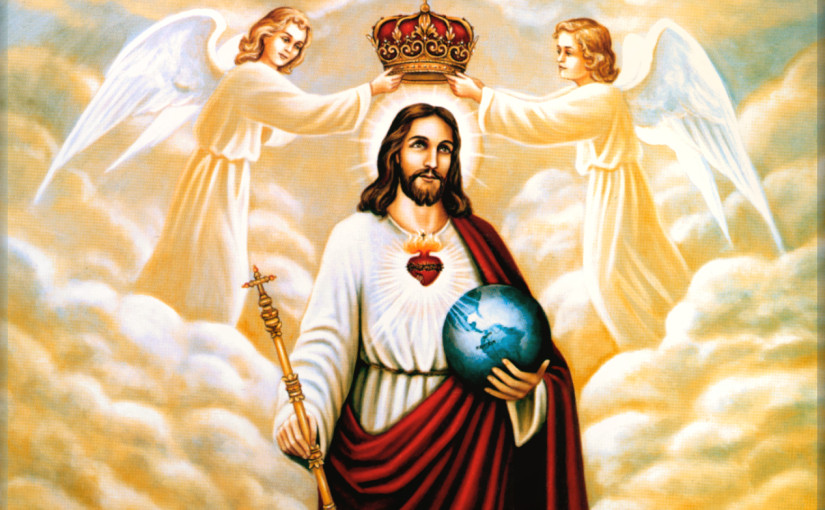
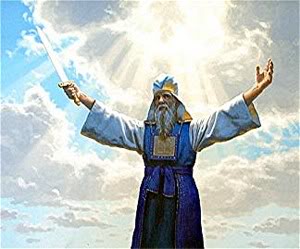
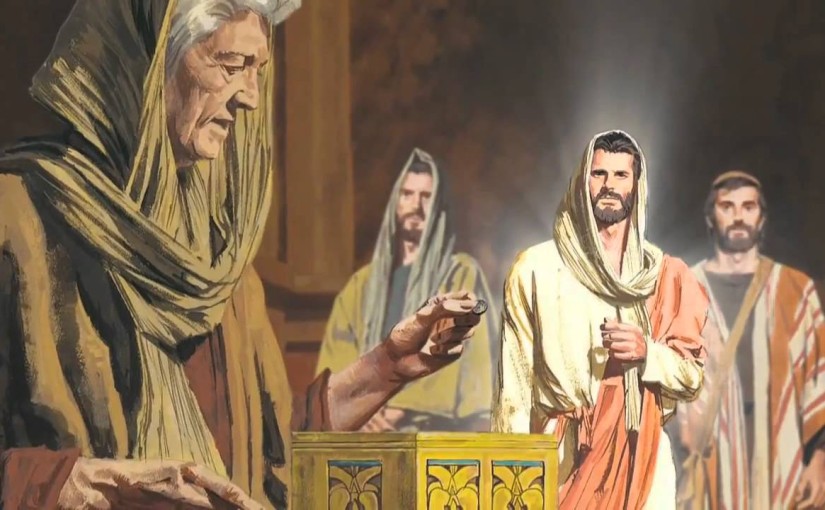
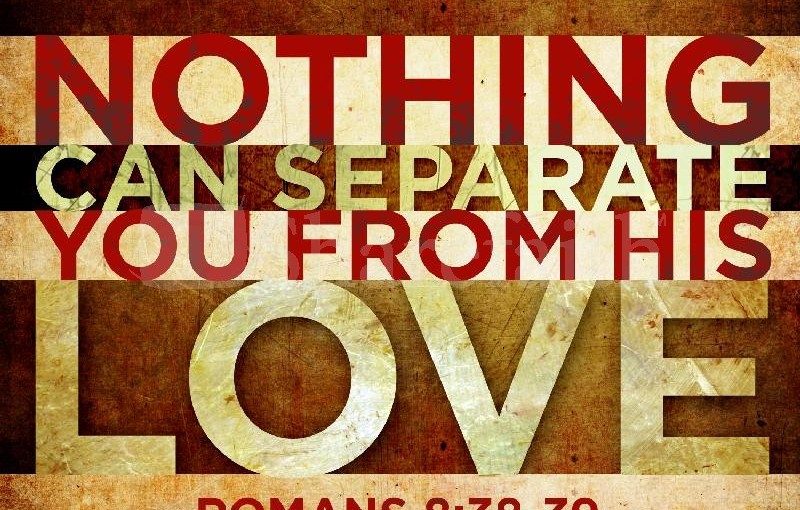
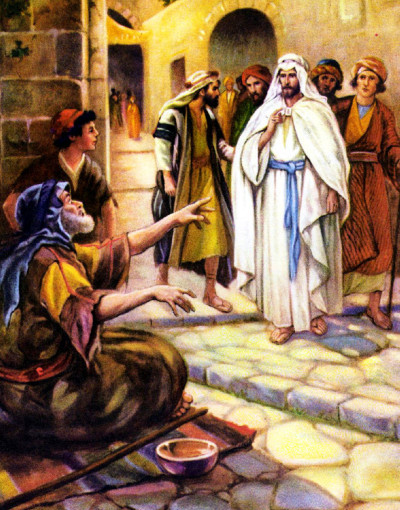
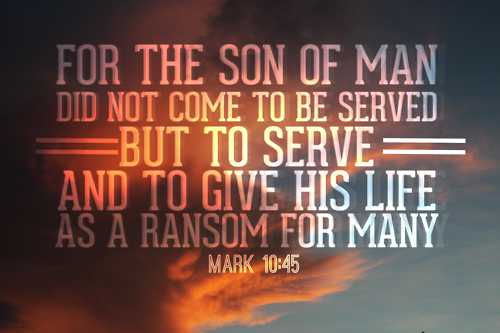
You must be logged in to post a comment.